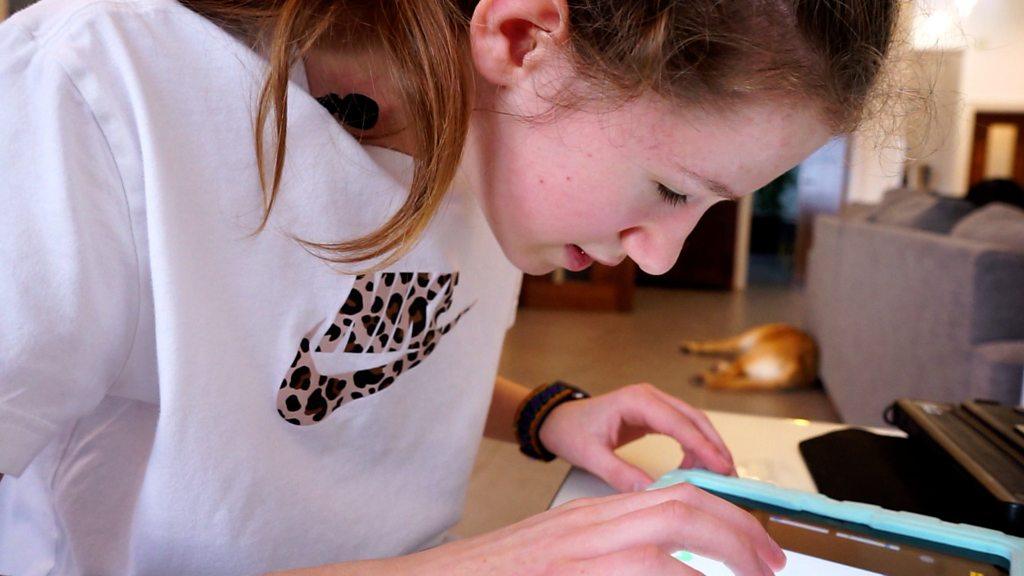Covid-19 pandemic 'hit wellbeing' of children with sight loss
- Published
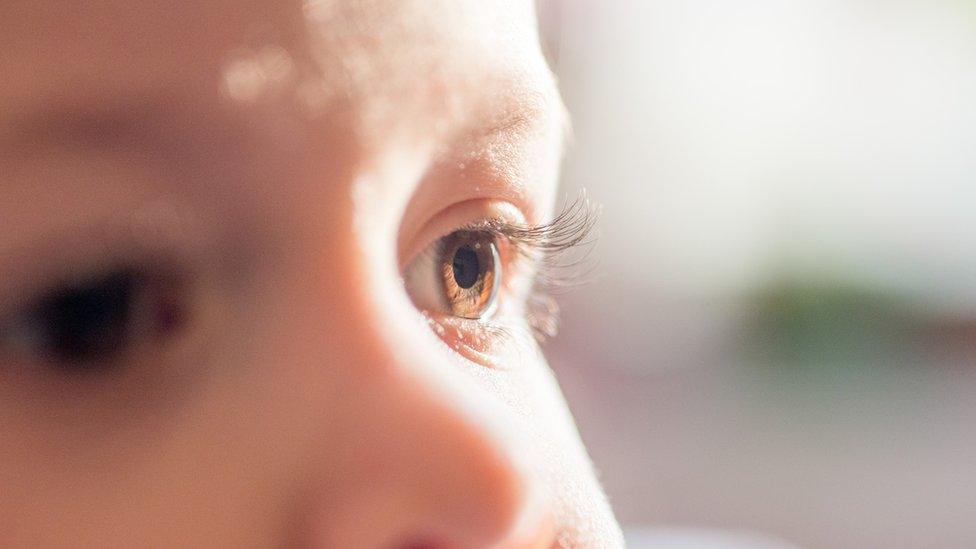
The Covid-19 pandemic has led to an "alarming decline in emotional health and wellbeing" for some blind or visually-impaired children.
That is according to a report from Angel Eyes NI, an organisation that supports children and young people with visual impairment in schools.
It said the likes of lockdown and home-learning had increased pre-pandemic inequalities.
But that keeping special schools open in early 2021 had helped some children.
Angel Eyes NI was founded by Sara McCracken after her own twins were born visually impaired.
Its report on how the pandemic has affected children and young people with vision impairment in education is based on responses from 110 families.
Children who are blind or have a visual impairment can attend either mainstream or special schools.
Some have help from a classroom assistant or use technology like an iPad to help them read bigger text or have resources adapted in braille.
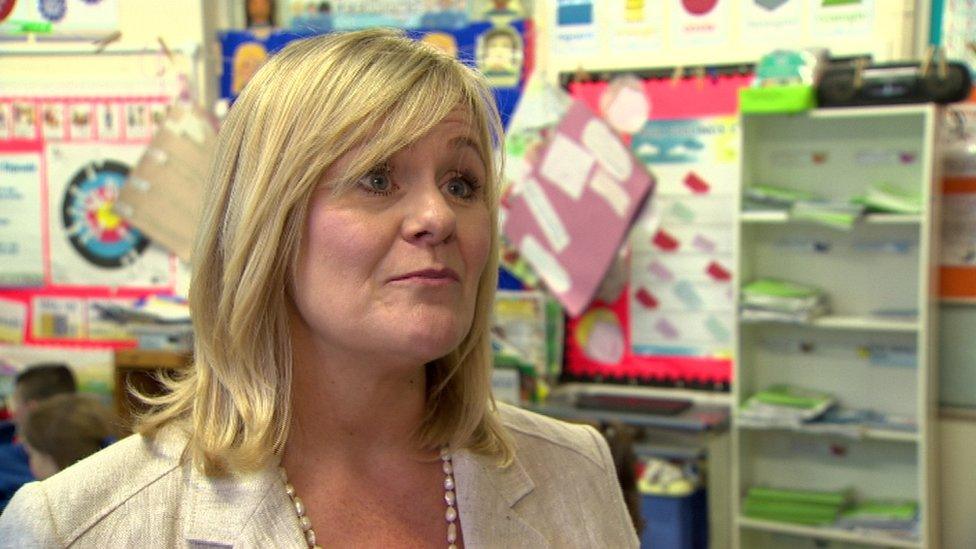
Sara McCracken founded Angel Eyes NI
Many families who contributed to the Angel Eyes NI report said that when schools moved to remote learning during lockdowns in 2020 and 2021 their children received inadequate support.
But that echoed the experience of some before the pandemic.
"For example, poor A3 photocopies, large print books with typos, pages out of sequence and black and white copies of materials, when peers are accessing coloured copies," the report said.
"As more braille users turn to mainstream education as their choice of educational setting, it has become evident that there is neither the expertise, nor the resource base, in Northern Ireland to competently teach the required skills across the curriculum, nor produce the required materials."
"This has resulted in blind children being excluded from the same learning experience as their peers, impacting both the emotional wellbeing and academic attainment of the pupils."
'Awful, horrendous experience'
About half of the parents of blind or visually-impaired children said home learning and lockdown had "a negative impact on their child's emotional wellbeing."
"Social isolation was a great concern for parents, especially those whose children have additional needs and are/were experiencing feelings of anxiety," the report said.
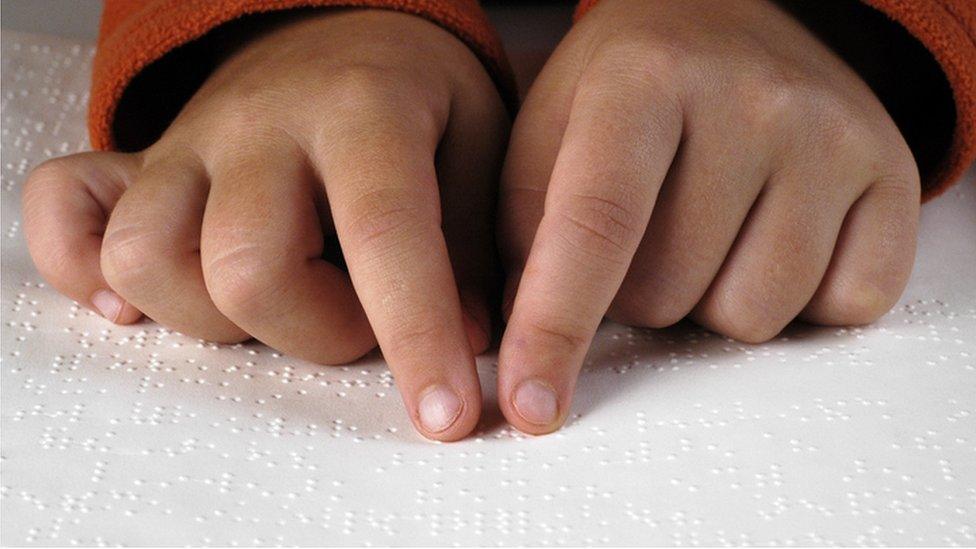
One parent quoted in the report said: "When lockdown happened, the first few days were great, because my son was off school, but after a very short space of time he shut down.
"Like many kids, he felt very isolated with minimal communication from the school. We as parents, also felt this.
"With no to little support with any home learning, and no contact with peers, it was an awful and horrendous experience."
Angel Eyes said there was also a need to provide better learning materials - both printed and in braille - and better IT technology to pupils with a visual impairment.
They have also called for better training for classroom assistants who support blind pupils and for the Department of Education (DE) and the Education and Training Inspectorate (ETI) to monitor the support offered to, and progress made by, visually-impaired children.

'No-one understood, I was different'
Rebecca Kerr's 14-year-old daughter, Jessica, has cerebral visual impairment (CVI) - one of the most common causes of visual impairment in children.
As a result, Jessica struggled to see her friends' faces in the playground unless they were close to her and had difficulty seeing the board in class.
"It was really difficult because I felt like no-one understood and I was different from the other kids," Jessica told BBC News NI.

Rebecca Kerr with her daughter Jessica who has cerebral visual impairment
"She couldn't see our faces, she couldn't see different colours, she couldn't see how things moved, whether it was moving quickly or slow," Rebecca said.
"So CVI kids struggle, they struggle with daily life."
Rebecca also said it had taken years for Jessica to be provided with the right support in school but that eventually getting one-to-one help from a classroom assistant had made a big difference.

Angel Eyes NI said many other children were still waiting for appropriate help.
"The reality in Northern Ireland for many children with a vision impairment is a lack of suitable support, and staff with no knowledge or understanding of their particular needs," the report concluded.
The report is based on experiences of families collected in April 2021, but has just been published.
Although some schools have recently had to ask some pupils to move to remote learning on a temporary basis due to staff shortages, there has been no widespread move to online learning as a pandemic measure in Northern Ireland since pupils returned to classrooms in April 2021.
Related topics
- Published20 May 2016
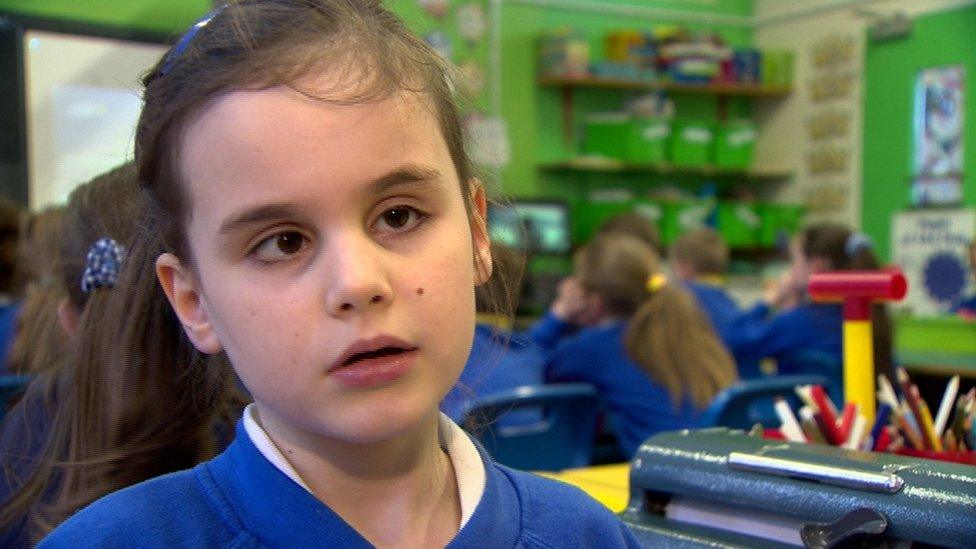
- Published28 November 2021
